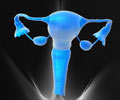A report on IVF has emphasized that women having IVF treatment subject themselves to more risks and complications from the hormonal treatment to conceive a baby.
In-Vitro fertilization (IVF) has been very successful in women who are infertile due to problems with their eggs or tubes. In the procedure a donated egg and a sperm is fertilized outside the body and the product is then implanted inside the womb of a woman. The egg can sometimes be of a third party, a relative or sometime can originate from the woman herself.‘The Sun’ newspaper has recently reported that a woman has succumbed to toxic shock after IVF treatment at St Mary's Hospital in Manchester.
A report published in ‘The Daily Telegraph’ daily in the UK features that one in seven women who receives IVF treatment maybe hospitalized with complication that can be serious and sometimes life threatening. The study done by a Finnish group emphasized that this risk was double when compared to natural pregnancies.
The complications include miscarriages, bleeding, ectopic pregnancy and ovarian hyperstimulation syndrome. The study looked at the results from the National Research and Development Centre for Welfare and Health in Helsinki. The survey had nearly 20,000 women who either underwent IVF or ovulation stimulation to donate eggs.
In the past it was found that almost eight per cent of natural pregnancies result in complications that can require hospital treatment. But this risks related to IVF are far higher and this is important and the patients who wish to have the treatment should be made aware of this risk.
IVF was first developed by Patrick C. Steptoe and Robert G. Edwards in England. The first "test-tube baby" was born under their care in 1978. And since then this technique has helped many childless couple to have children of their own. The use of in vitro fertilization has resulted in the birth of more than 500,000 babies. Its use has also raised many legal, ethical, and religious issues.
Advertisement











